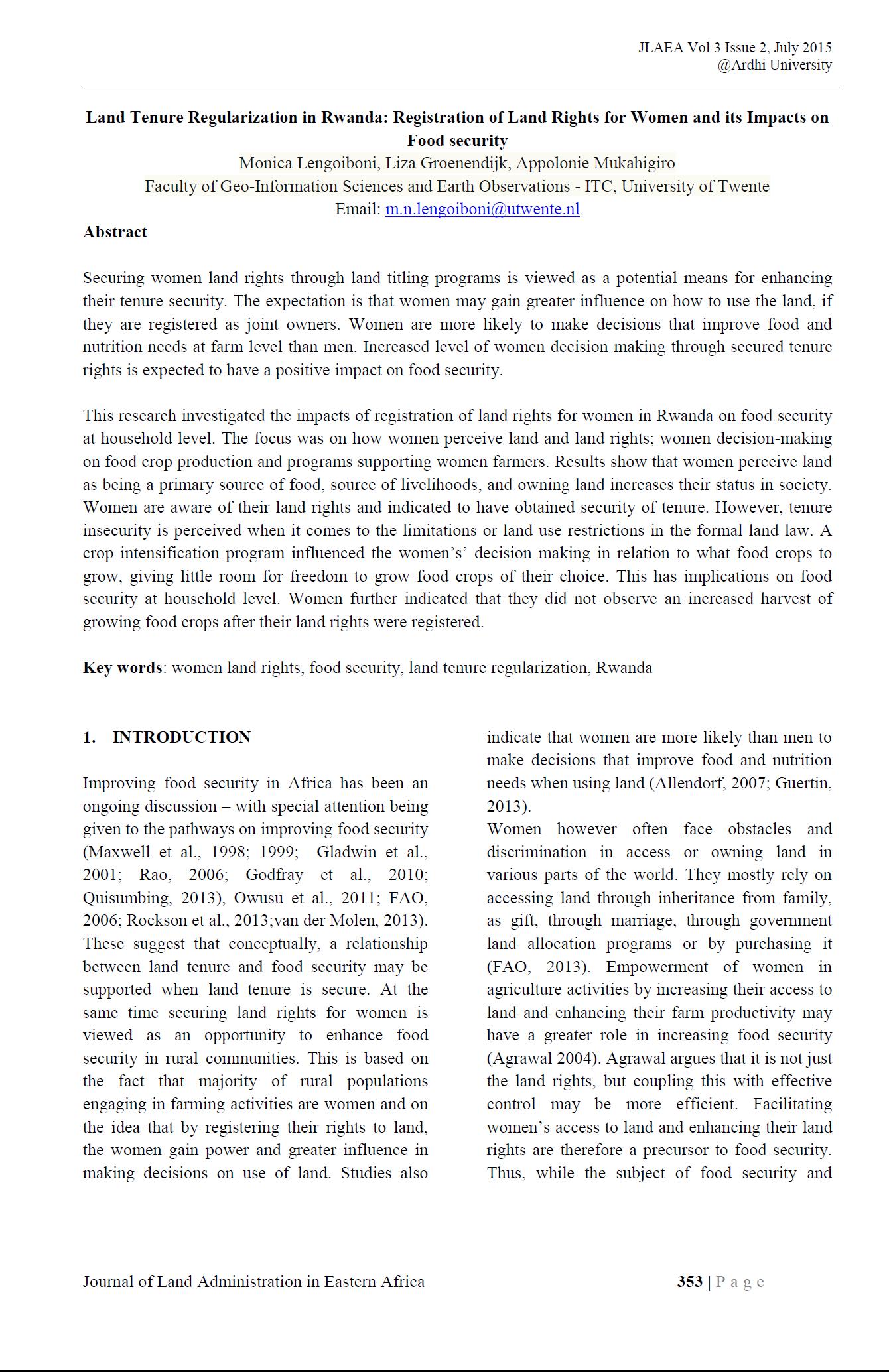Resource information
Securing women land rights through land titling programs is viewed as a potential means for enhancing their tenure security. The expectation is that women may gain greater influence on how to use the land, if they are registered as joint owners. Women are more likely to make decisions that improve food and nutrition needs at farm level than men. Increased level of women decision making through secured tenure rights is expected to have a positive impact on food security.
This research investigated the impacts of registration of land rights for women in Rwanda on food security at household level. The focus was on how women perceive land and land rights; women decision-making on food crop production and programs supporting women farmers. Results show that women perceive land as being a primary source of food, source of livelihoods, and owning land increases their status in society. Women are aware of their land rights and indicated to have obtained security of tenure. However, tenure insecurity is perceived when it comes to the limitations or land use restrictions in the formal land law. A crop intensification program influenced the women’s’ decision making in relation to what food crops to grow, giving little room for freedom to grow food crops of their choice. This has implications on food security at household level. Women further indicated that they did not observe an increased harvest of growing food crops after their land rights were registered.


